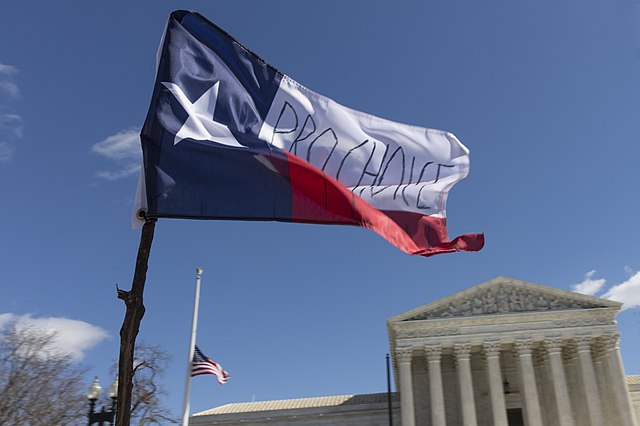
The U.S. Supreme Court will soon announce whether it has decided to overrule Roe v. Wade and return the issue of abortion to the states. The leaked draft opinion in Dobbs v. Jackson Women’s Health Organization indicates that the Court may well be ready to take that step, and activists on both sides of the abortion issue are preparing for a ruling that could drastically alter the legal landscape governing abortion in the U.S.
But what hasn’t been pointed out in the frenzy over the leaked Dobbs draft opinion is that Roe is, practically speaking, already dead — regardless of what the Court decides to do in Dobbs. The states already have the ability and authority to restrict abortion in any manner they see fit. Accordingly, they do not need to wait for the Court to overrule Roe to severely limit or simply outlaw abortion within state borders.
Last Wednesday, Gov. Kevin Stitt of Oklahoma signed a near-total abortion ban into law. That ban took effect immediately upon Stitt’s signature. The new law has eliminated access to abortion in the state and made Oklahoma the first state to successfully outlaw abortion in toto since Roe was issued in 1973. But what is truly remarkable is that Oklahoma has accomplished this while Roe v. Wade still remains on the books as “good law”—and while extant Court precedent still maintains that abortion is a constitutionally protected right.
That raises the obvious question: How can a state succeed in banning abortion when Roe v. Wade has not yet been overruled?
Oklahoma was able to pull this off by copying the ingenious enforcement mechanism from the Texas Heartbeat Act, which prohibits state officials from enforcing its restrictions while authorizing private citizens to sue anyone who performs or “aids or abets” an abortion. By structuring its law in this manner, Oklahoma has made it impossible for abortion providers to challenge the statute’s constitutionality in federal court: There are no state officials providers can sue for enforcing the law.
And without the ability to obtain pre-enforcement legal relief, Oklahoma abortion providers have no choice but to comply with the abortion ban; otherwise, they will face an avalanche of financially ruinous civil-enforcement lawsuits from private citizens who cannot be identified or sued in advance.
Texas used this same maneuver last September to successfully outlaw abortion at six weeks’ gestational period. Now, Oklahoma has taken it all the way by outlawing abortion from the moment of fertilization.
All of this makes the anticipated ruling in Dobbs at least somewhat anticlimactic — it will not be the formal overruling of Roe that returns the issue of abortion to the states. That moment has already arrived, as Texas and Oklahoma have cracked the code and demonstrated how to enact an abortion ban that evades judicial review and neuters Roe.
It is now untenable, perhaps farcical, to suggest that the Court should adhere to Roe out of concerns for the Court’s institutional stature. Many in the media have become fond of saying that the Court’s credibility will be harmed if it overrules Roe. But at this point, the Court’s credibility will be far more damaged if it continues to insist that abortion is a constitutional right when any state can cleverly legislate its way around Roe’s very supposed holding.
Indeed, Texas and Oklahoma have already done it — and more states will follow if the eventual ruling in Dobbs stops short of the leaked draft opinion’s total repudiation of Roe.
This essay is republished with attribution from the Daily Caller News Foundation. The views and opinions expressed in this commentary are those of the author and do not reflect the official position of the Daily Caller News Foundation. Content created by The Daily Caller News Foundation is available without charge to any eligible news publisher that can provide a large audience. For licensing opportunities of our original content, please contact licensing@dailycallernewsfoundation.org.


